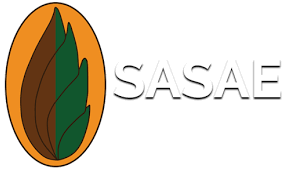Economic analysis of smallholder maize farmers: implications for public extension services in Eastern Cape
DOI:
https://doi.org/10.17159/2413-3221/2020/v48n2a537Keywords:
economics, profitability, maize farmers, extension service, Eastern CapeAbstract
This study sought to determine the economics of maize farmers in Amatole District, Eastern Cape. Multistage sampling procedure was used to select hundred and nine (109) smallholder farmers (homestead and irrigators). Descriptive statistics and gross margin analysis were used to determine the economics and profitability of maize in the study area. Findings indicated that majority (66 per cent) of them were men with an average age of 61 years old, majority (69 per cent) were married, with mean household size of 4 persons and household heads having some primary education. Moreover, majority (76 per cent) of the farmers depended on irrigation technology; majority (33 per cent) of the famers spent between 9 and 11 years of experience in farming; majority (89 per cent) of the respondents in the study area were dependent on farming as their major occupation and livelihood. Pertaining to land acquisition, majority (48%) of the farmers believed that the traditional or community leaders set rules and regulations regarding land acquisition. From the profitability analysis, smallholder farmer irrigators generated significantly higher yield, total revenues and gross margins more than the homestead gardeners at 5, 10 and 5 per cent levels, respectively. Moreover, homestead gardeners spent more money in purchase of inputs and this may have contributed to their low gross margins. On the other hand, smallholder-farmer irrigators who incur less input costs have higher chances of benefiting from price discounts and transport offer by input suppliers than the homestead gardeners. This results in smallholder farmer irrigators wielding more profits, thereby creating more income and wealth which is pivotal in the improvement of farmers' livelihoods.
Downloads
Downloads
Published
Issue
Section
License
Copyright (c) 2022 IK Agbugba, Mzuyanda Christian, A Obi

This work is licensed under a Creative Commons Attribution 4.0 International License.







.png)